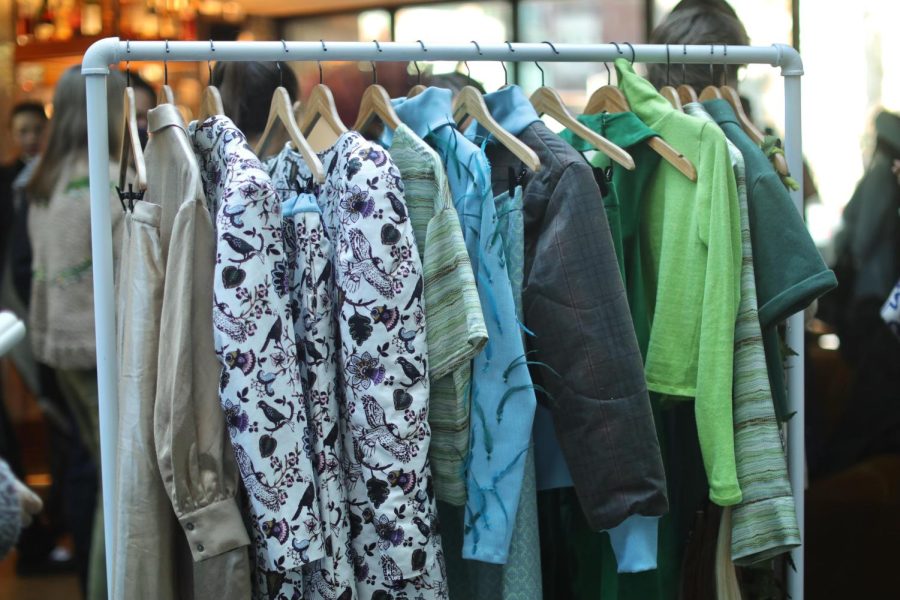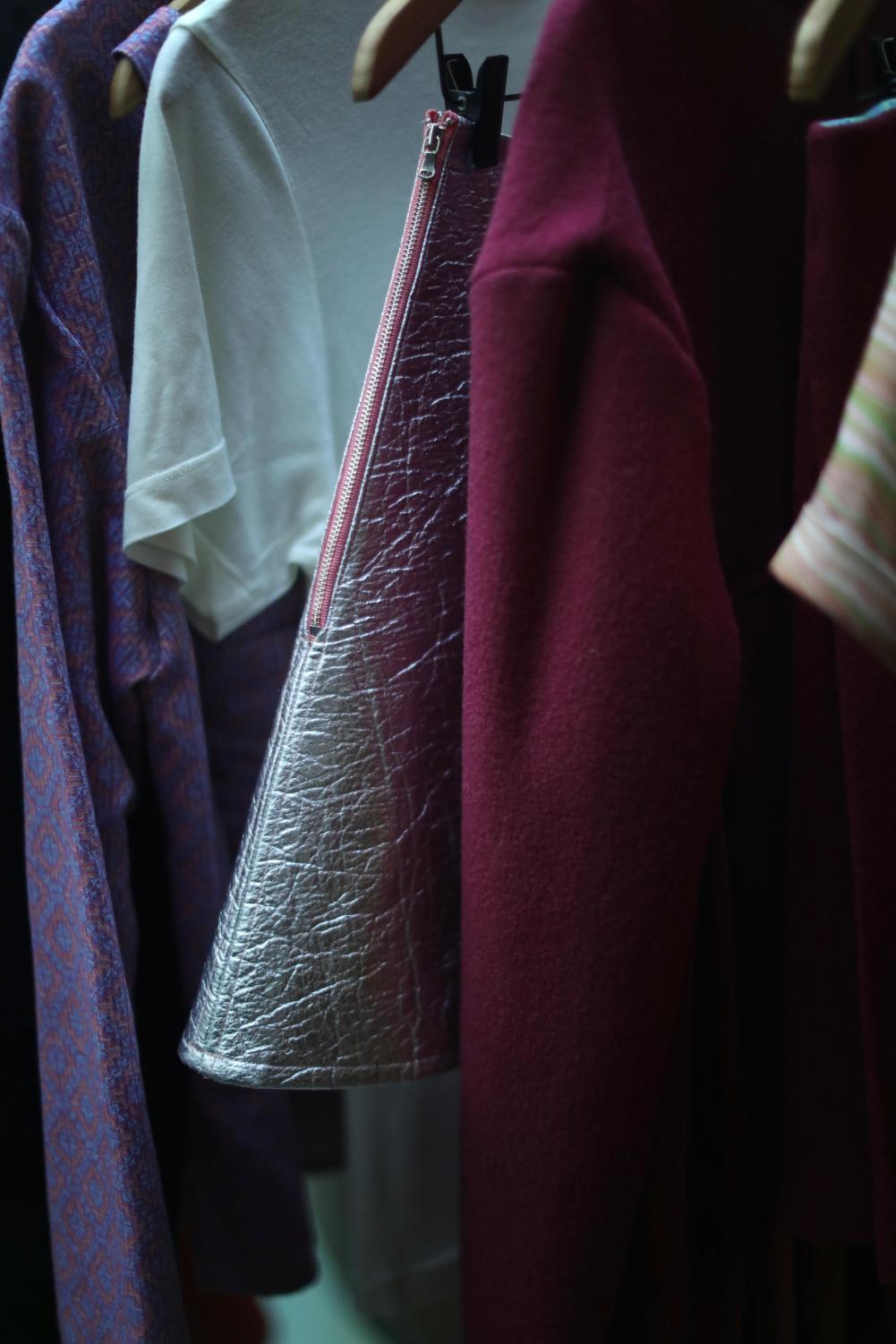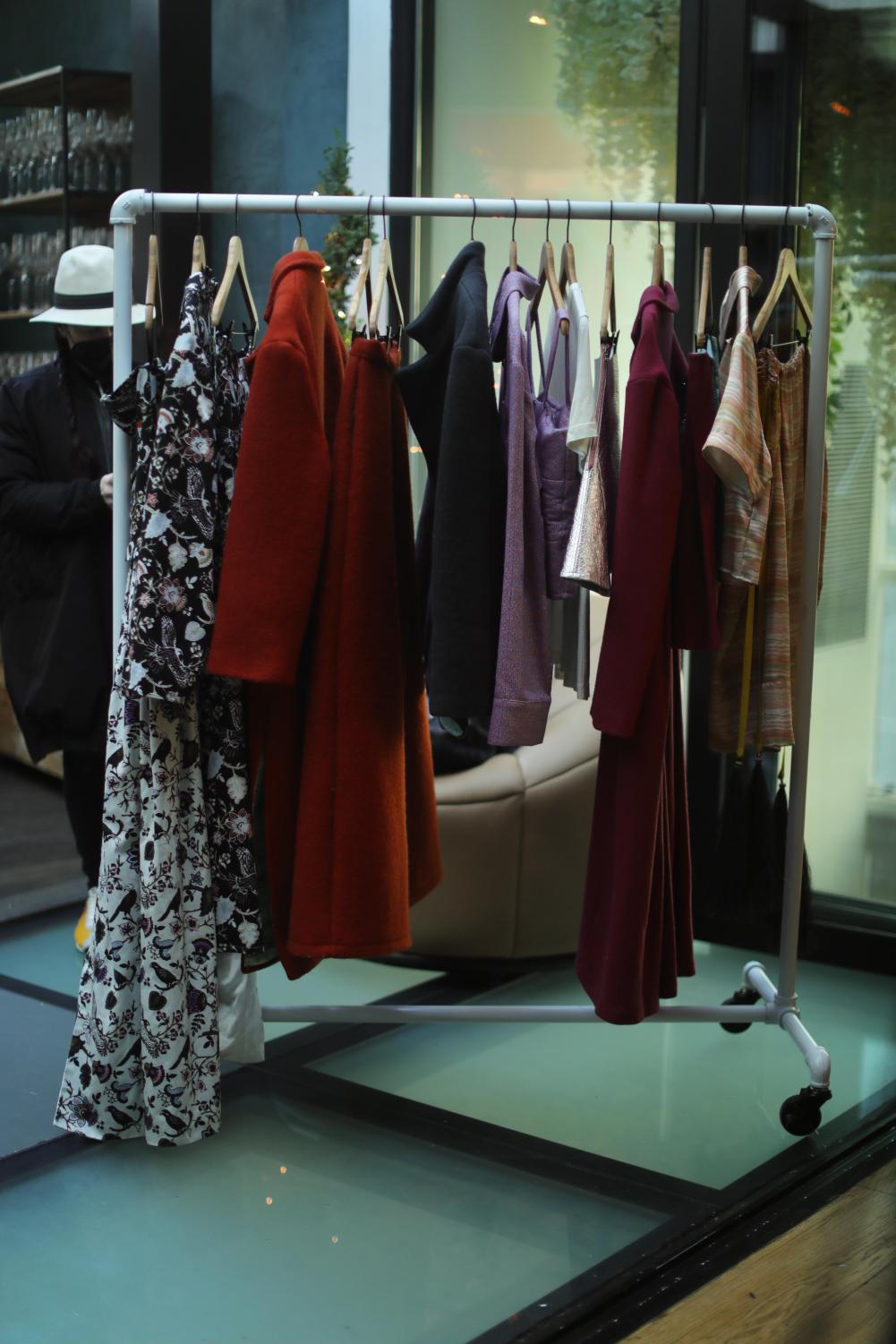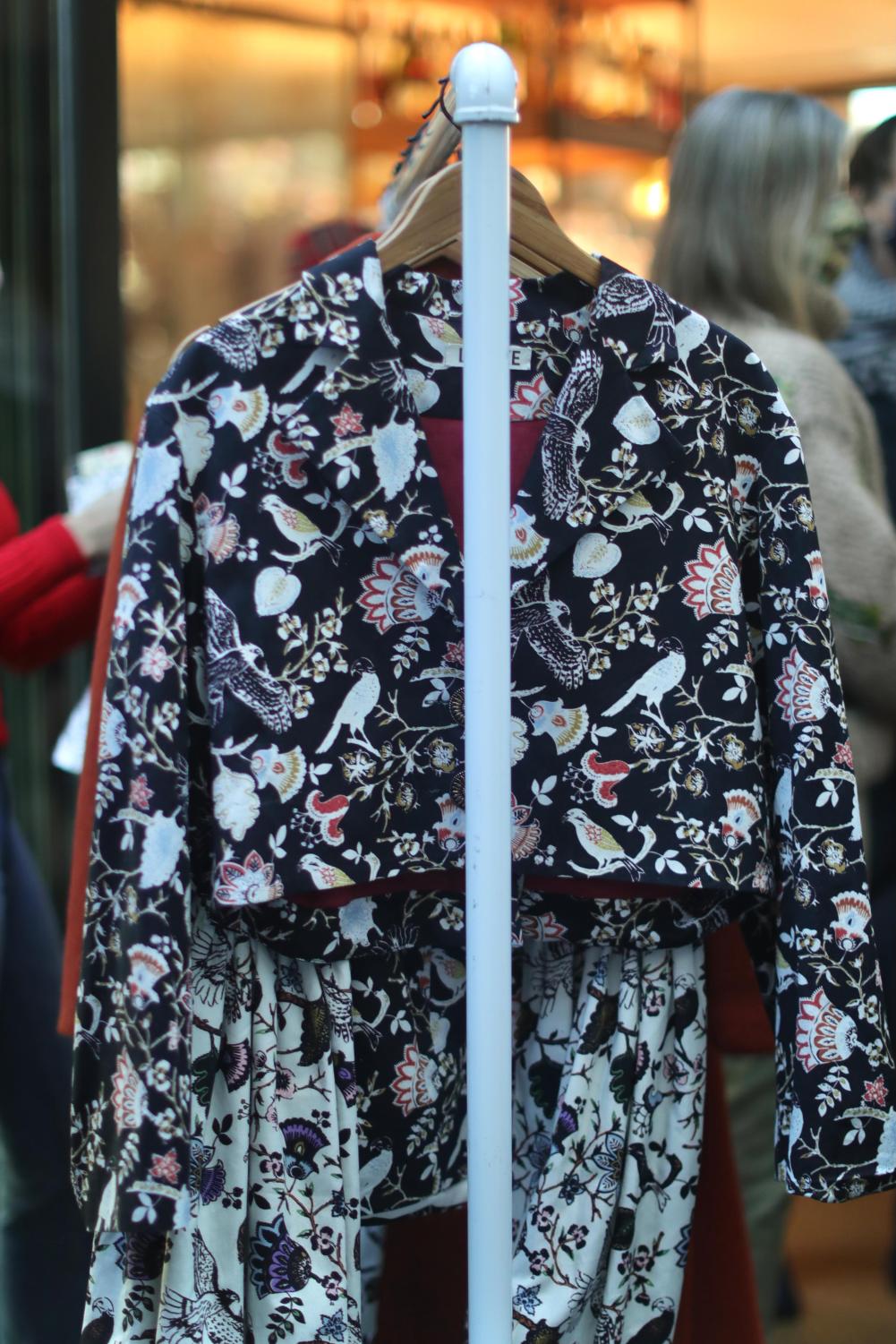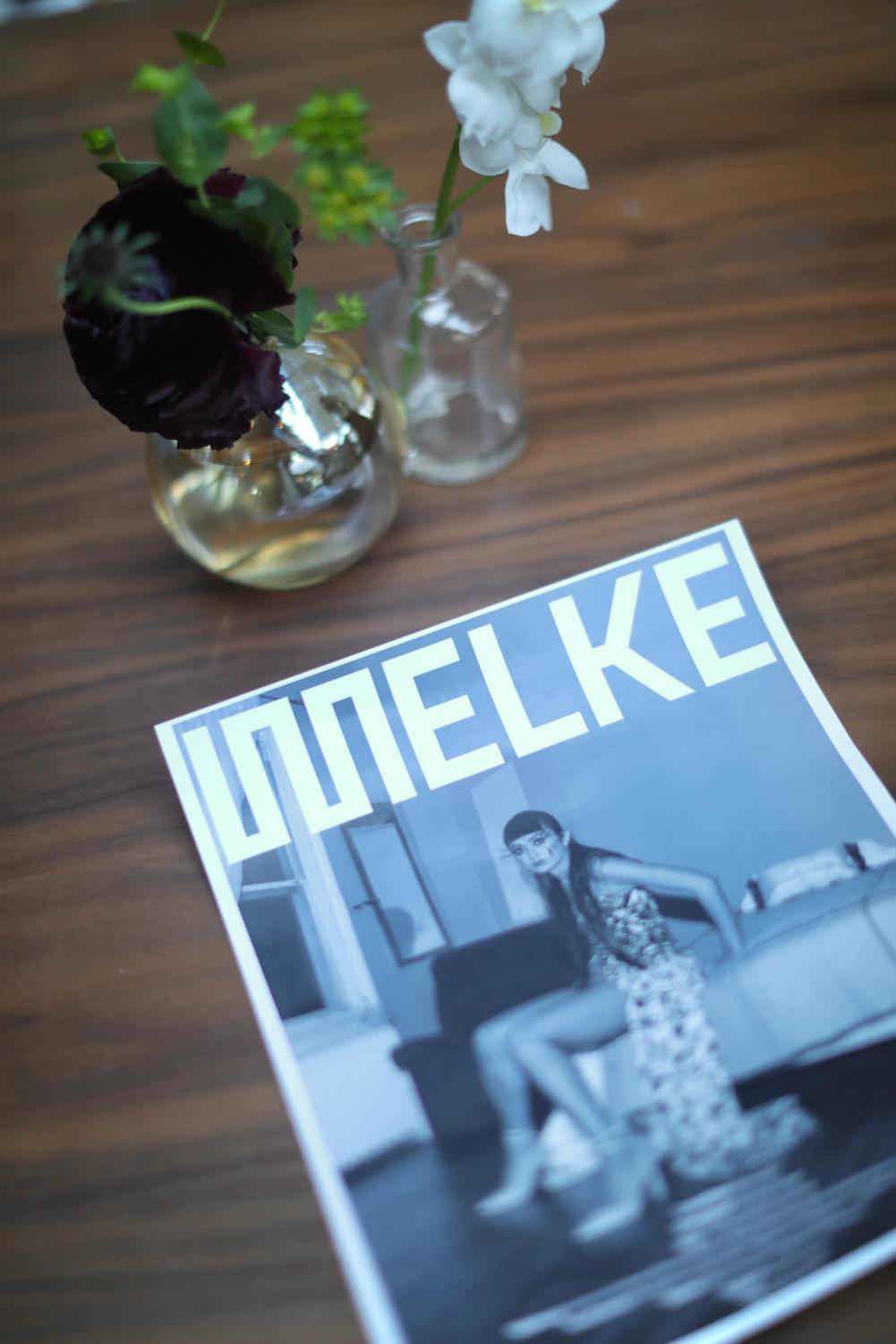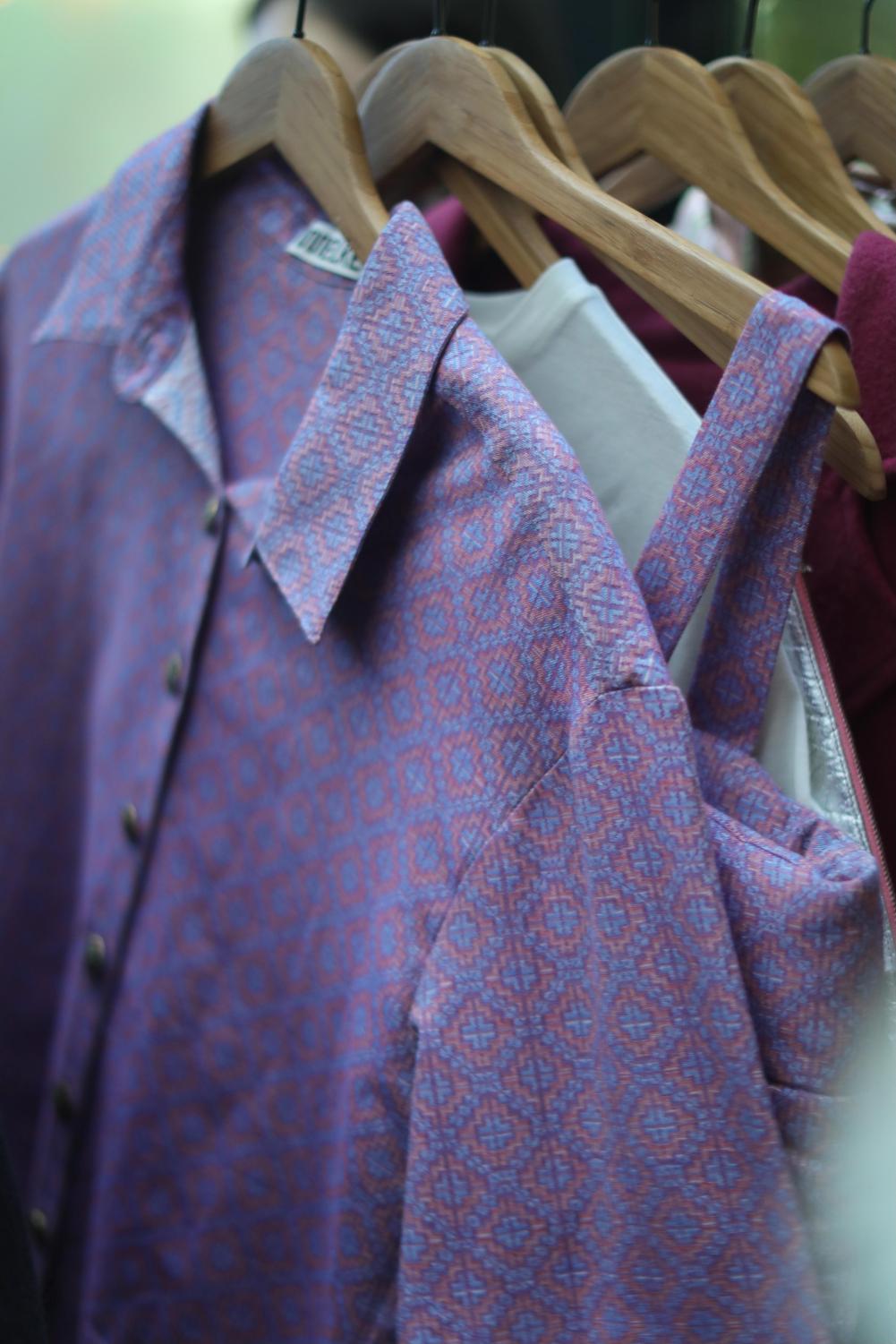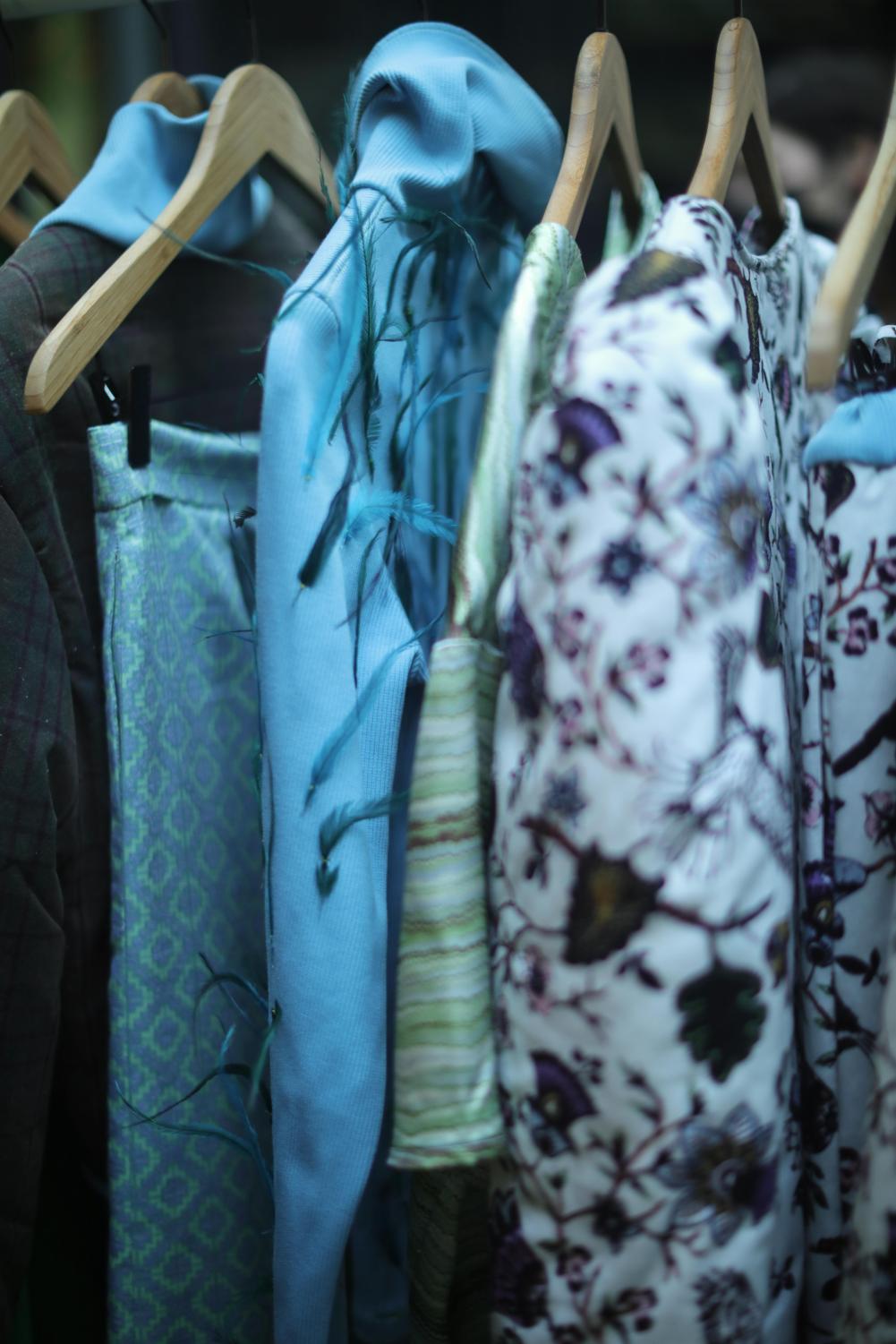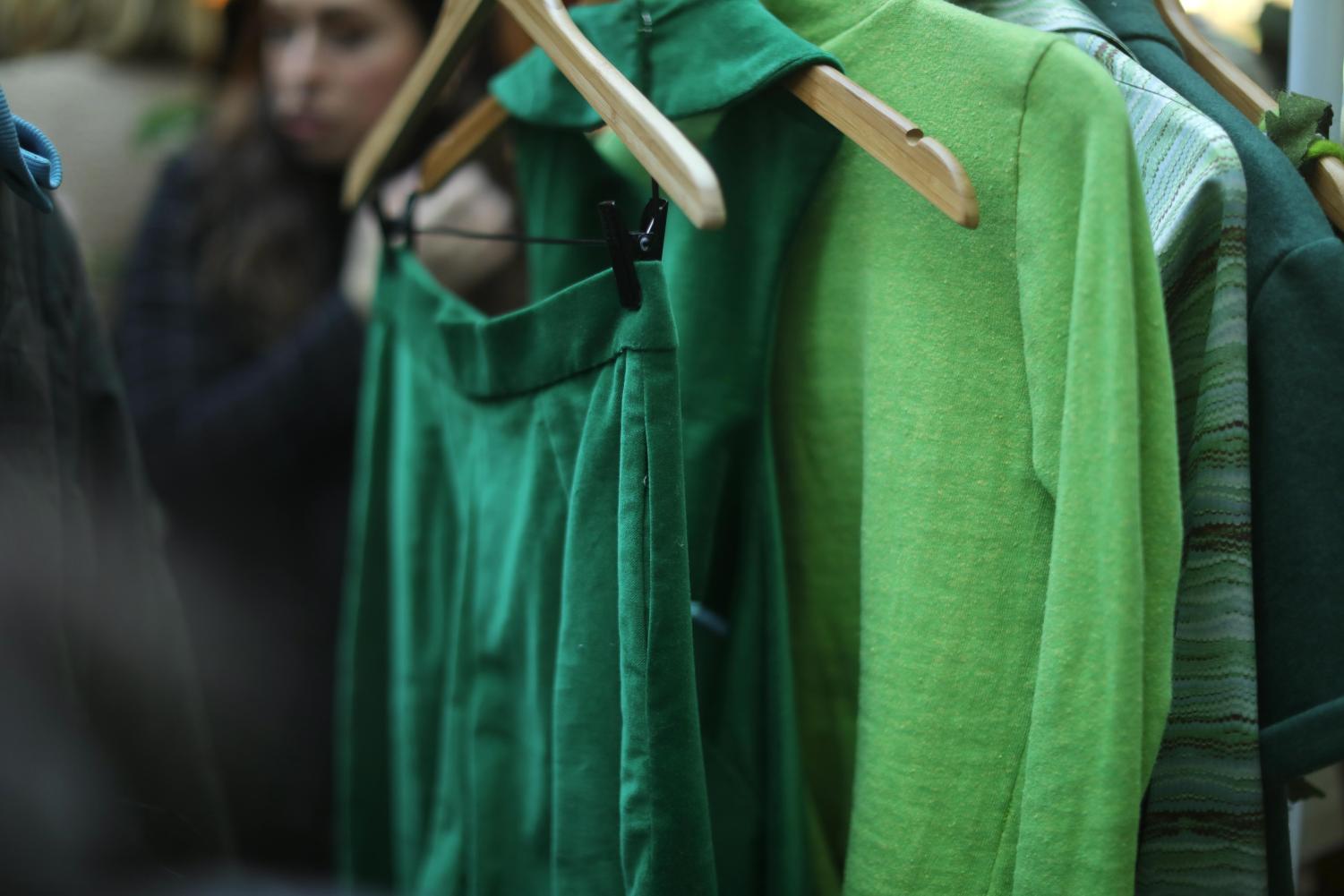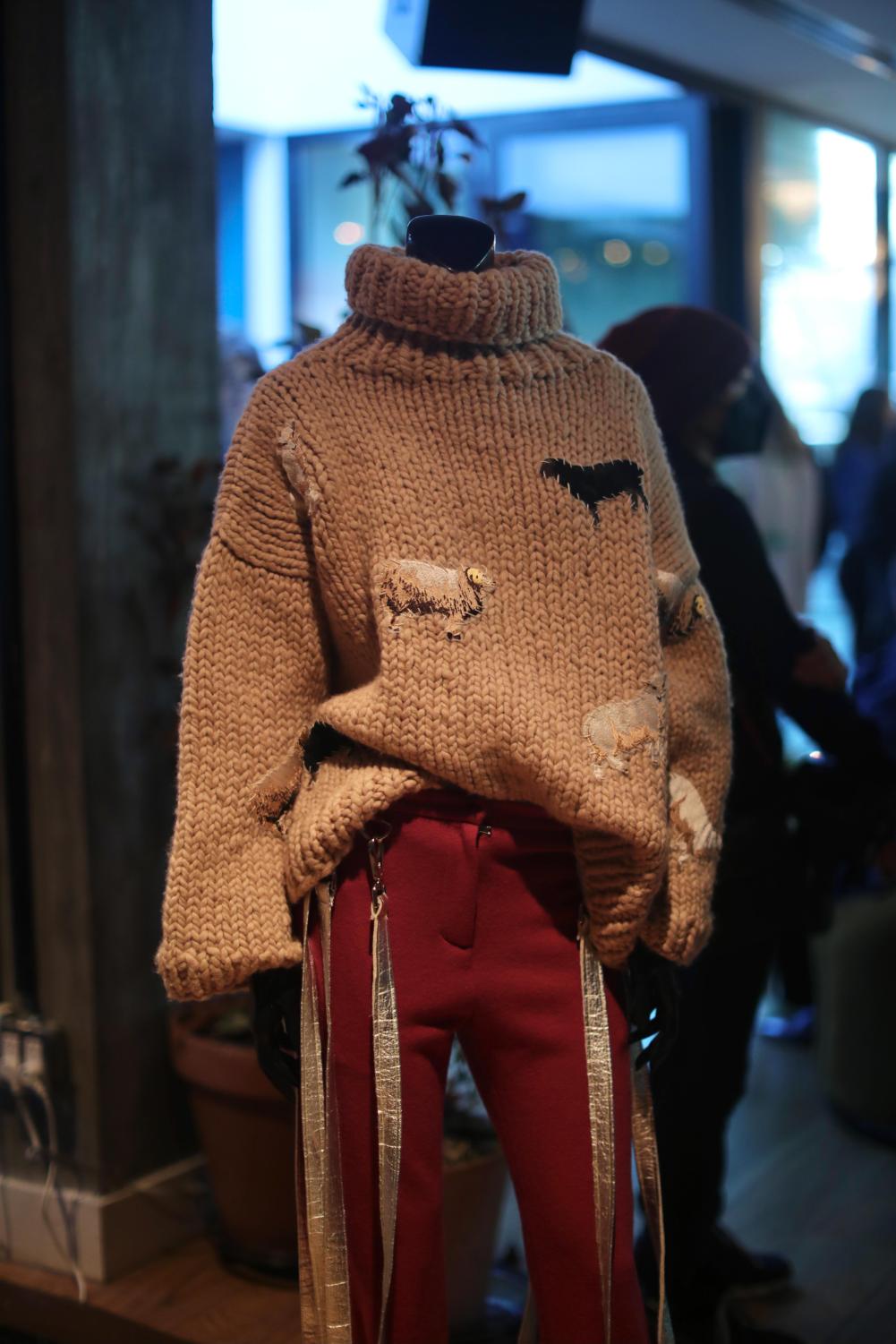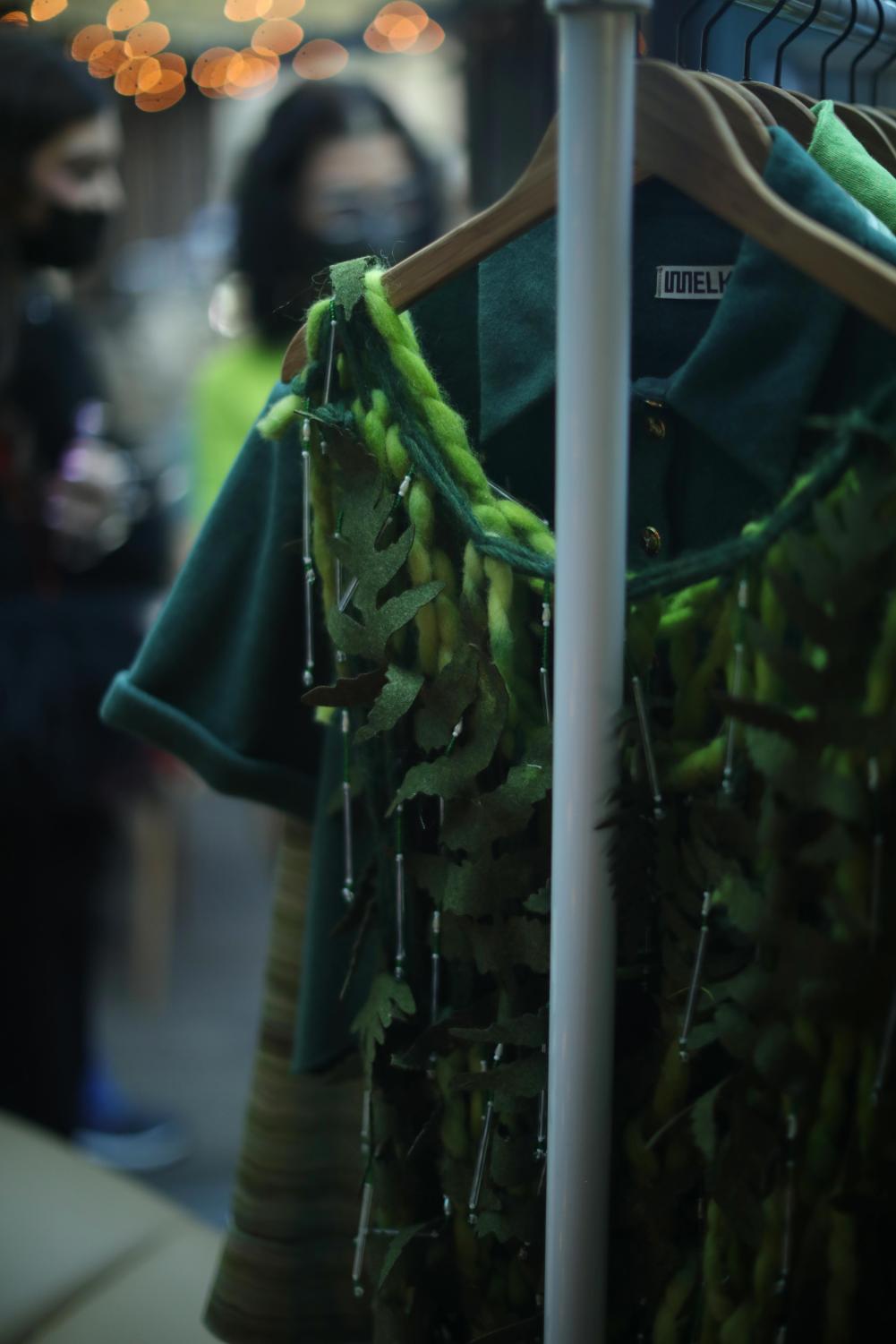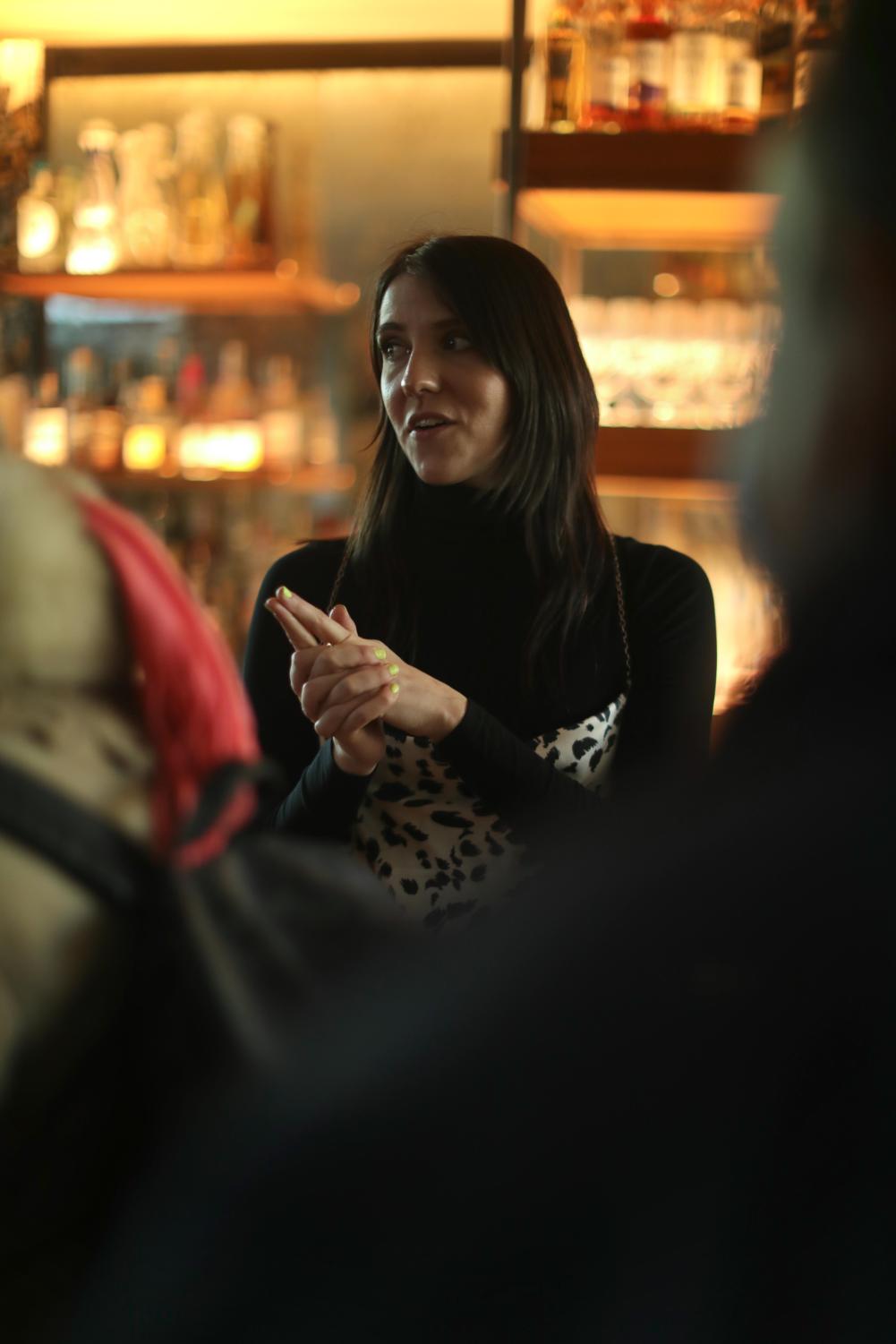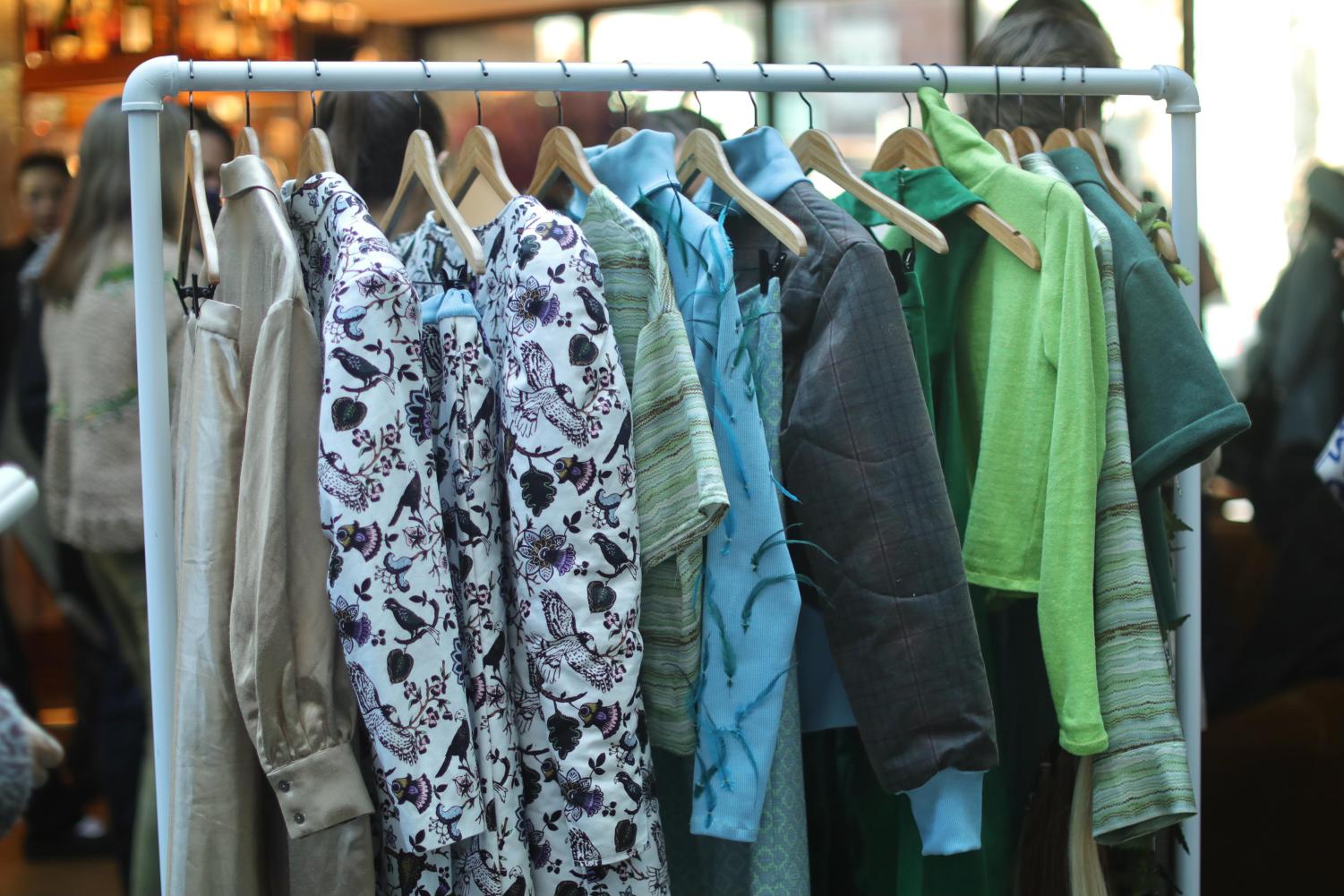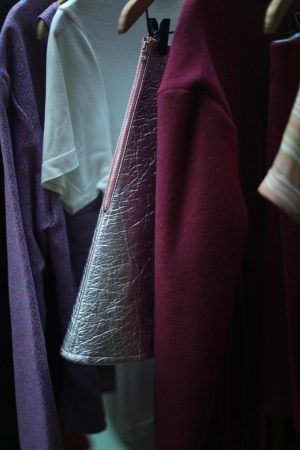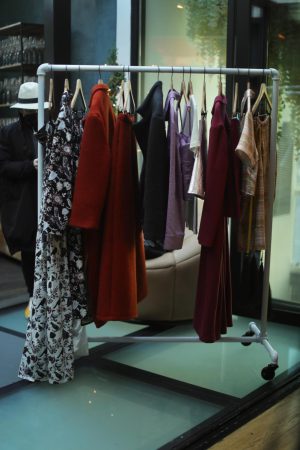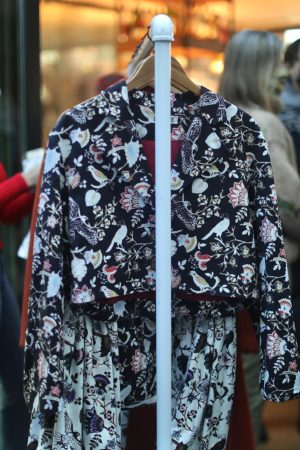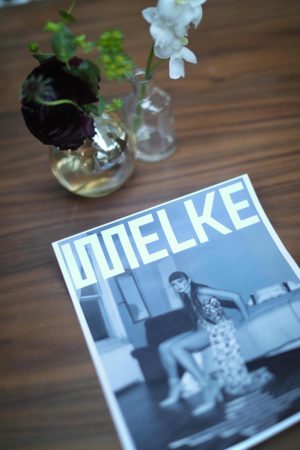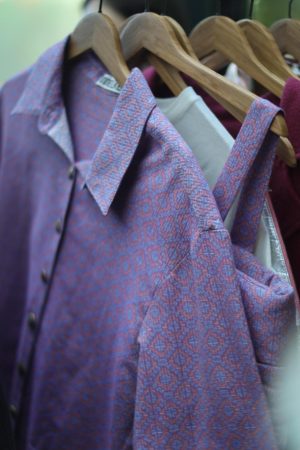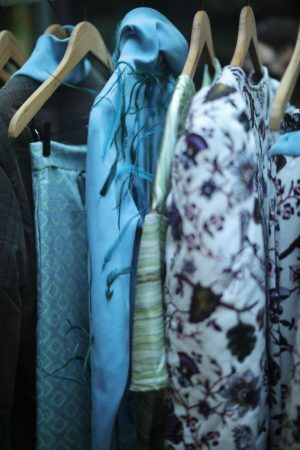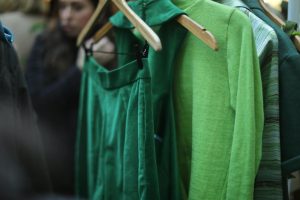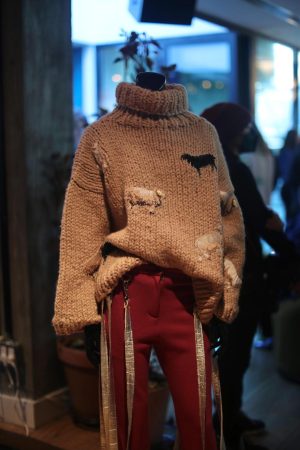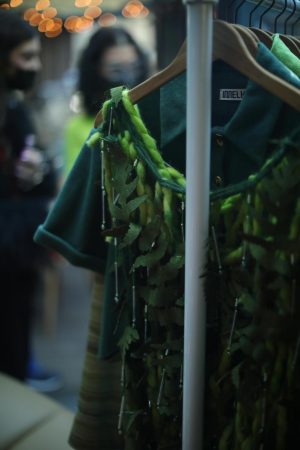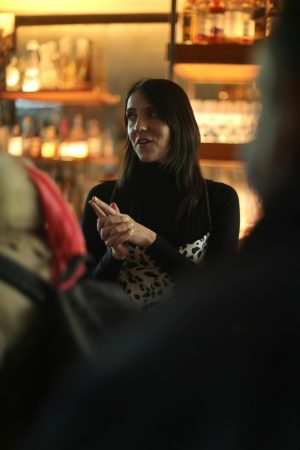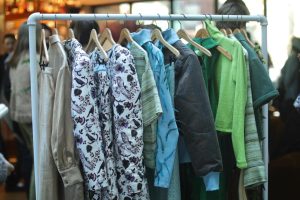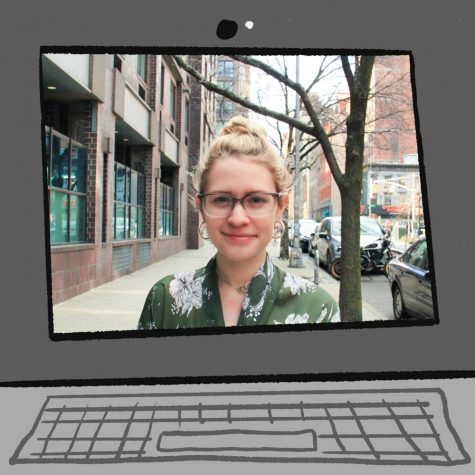Melke’s NYFW presentation was a riot for sustainability
Embellishing her collection with ferns and beads, Melke’s designer Emma Gage redefines sustainability in fashion.
(Photo by Celia Tewey)
February 16, 2022
As attendees entered the luminous Veranda establishment where Melke’s debut presentation was staged, they were transported from the heart of SoHo into a whimsical Irish castle. New York-based fashion designer Emma Gage started her clothing brand in 2020 and has since developed a vision for a fashion revolution. Her dedication to making artistic garments is accompanied by her advocacy for societal change and sustainability.
Through her winter collection, Gage depicted her experience visiting the historic Ashford Castle in Galway, Ireland, by including chivalric and natural motifs in her contemporary clothing. Entering the showroom, the attendees were greeted with a beautiful Italian merino wool knit sweater embellished with embroidered sheep as an ode to the shepherding activities on the premises of the castle.
Additionally, Gage has partnered again with KOCO, an extraordinary company that produces sweaters hand-knit by women in rural India who are breaking the patriarchal economic cycle by gaining financial independence. This set the tone for Gage’s social message, which was incorporated into all of her pieces.
Next, the invitees walked into a candlelit showroom, where the scents of moss, roses and fern immersed them in the ambience of nature. The collection showcased this ethereal environment, as well as the beauty of the castle’s modern renewal, through the use of eccentric materials, colors and patterns.
“It’s kind of a balance of old and new,” said Gage. “You have this modern experience mixed with history, and you get to feel the energy that was passed down through the walls and throughout the generations.”
At a first glance, Gage’s collection is spectacular just for including a variety of textures — including metallics, emu feathers, horse tails and luxurious satin. However, as Gage began to elaborate on each piece’s details, the collection gained more depth and left the audience in awe. Gage pointed to a classical bell-shaped dress with blue emu feathers leaning from the bust. The nostalgia of the dress was due not only to its shape but also its tartan plaid pattern and the waxed cotton material reminiscent of old-timer Barbour coats.
Another print that captured everyone’s attention was the satin marble pattern on shirts and skirts, which Gage said “was inspired by the cover of an old book that [she] found on falconry.” Once again, Gage crosses the artistic boundary between literature and fashion. In her previous collection, we saw Hellenic mythological innuendos and allusions to Anne Carson’s “Autobiography of Red,” whereas, in this collection, Gage used the poem “Field-sports” by William Somerville as a source of inspiration for the collection. This text allowed Gage to further explore the natural imagery and deepen the cultural connection between her art and her escapade in Ireland.
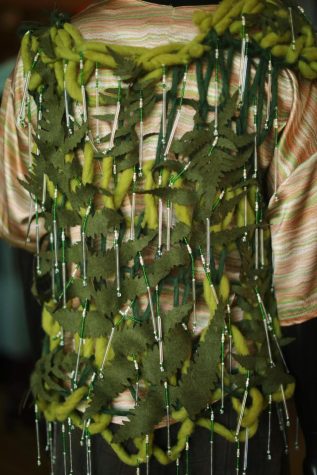
The last two looks presented were the stars of the show. A model wearing icy-blue eyeshadow sauntered into the showroom wearing Melke’s signature dripping fern dress made out of chunky wool and leaf-shaped cut-out felt. This audacious piece achieved a dewy look through the use of shiny green and transparent beads. It was paired with contrasting cranberry-red suede pants which reiterated the aesthetic of incorporating nature into modern style. This look was topped off with the brand’s signature acid yellow-green wrap stilettos. The other model wore a baroque-esque short dress with pinned-on drapes on either side of her hips, accompanied by an ornamented print representative of wallpapers from old castles.
At the end of the day, the seductive and enchanting aesthetics achieved through Gage’s artistry served as a call to action. Her brand’s existence and growing success is a statement and a menace to the disappointing lack of commitment the fashion industry shows for sustainability. Gage has found creative ways to obtain sustainable materials, from using milk by-products to create the signature “MELKE IT” T-shirt to sourcing sustainably acquired metal buttons.
Amanda Webster, Melke’s sales director, spoke about how Gage’s focus on becoming a fully sustainable brand is gaining popularity, as “interest has tripled in the last season.” This interest was particularly noticeable in the room of invitees, as influencers like Davis Burleson and icons like Heidi Gardner made appearances. Gardner wore a piece from Gage’s first collection, 49.0610° N, 94.8475° W. Influencer Olga Ferrara was also in attendance and expressed enthusiasm for the brand’s mission.
Webster added that many brands are labeling themselves as “sustainable” — with erroneous standards. For instance, based on her previous experience working with luxury Italian brands like Miu Miu and Prada, the use of PVC plastic was enough justification to describe themselves as sustainable. This greenwashing from larger brands led Webster to work with smaller, more committed brands, like Melke. She predicts that e-commerce will reward Melke’s efforts with exposure. For instance, the platform Farfetch is pushing an agenda to have one hundred percent of its brands achieve adamant sustainable requirements by 2030.
As more and more sectors of the fashion industry prioritize sustainability, brands like Melke will gain more well-deserved recognition.
Contact Sara Vargas at [email protected].


























































































































































